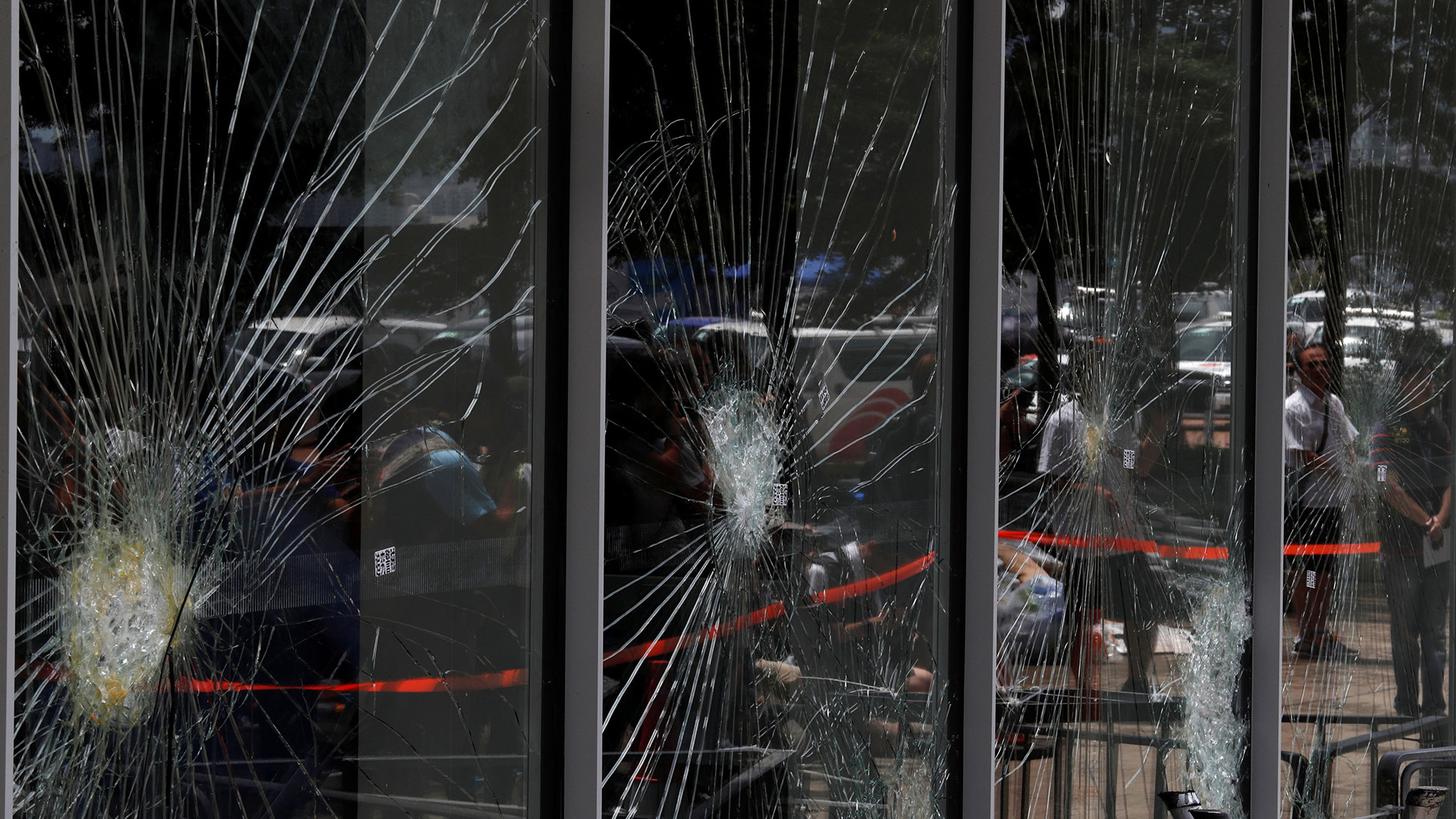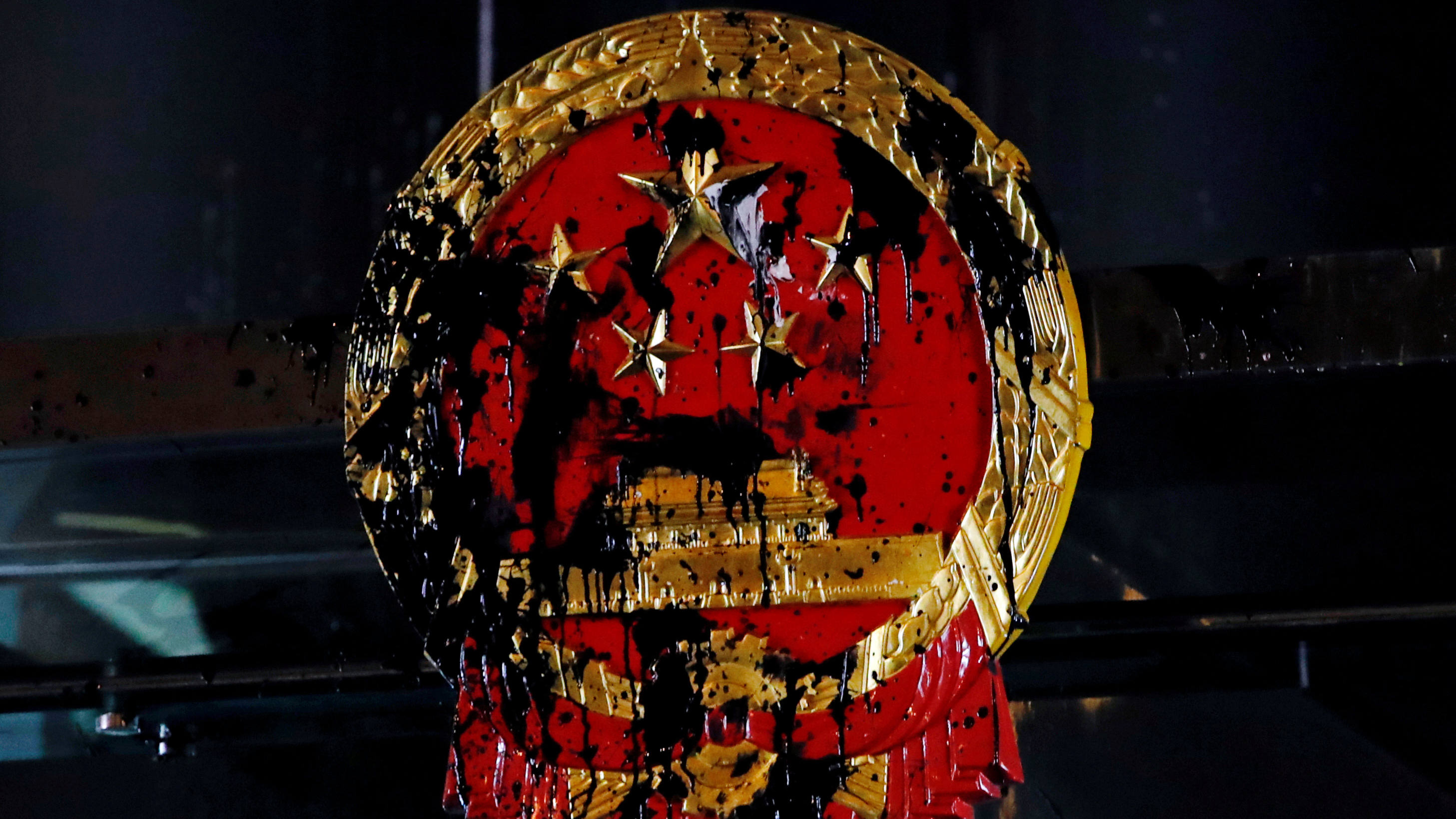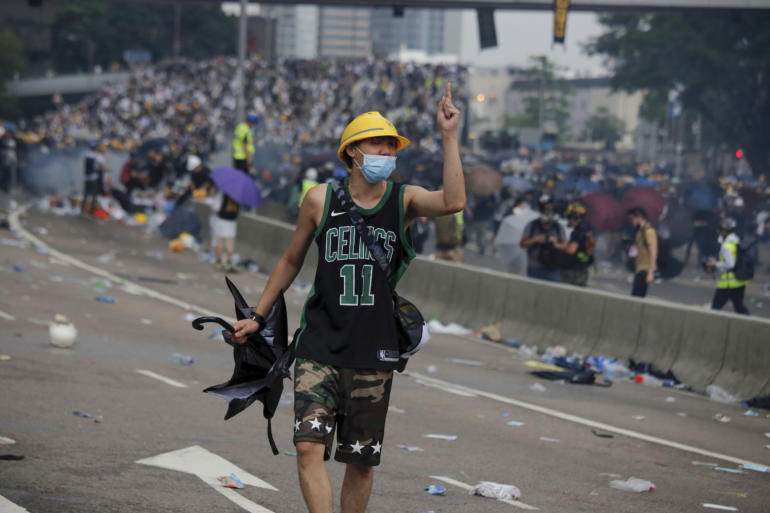

Editor's Note: Tom Fowdy, who graduated with an MSc in Chinese Studies from Oxford University and majored in politics at Durham University, writes on the international relations of China and the Democratic People's Republic of Korea. The article reflects the author's opinions and not necessarily the views of CGTN.
For the past eight weeks, the Hong Kong Special Administrative Region (HKSAR) has been in a state of unrest. Frequently, mass protests and displays of political discontent have rocked the city and turned many of its districts into a state of anarchy.
Demonstrators were initially motivated by anger over a fugitive bill introduced by the city's legislative council which would tweak existing laws to permit criminal extradition to the Chinese mainland.
However, in recent weeks, the protests have evolved from a single issue into an outright rejection of the authority in the territory and an extreme resentment of the mainland. In turn, the character of the demonstrations has become more aggressive, uncompromising, and willing to engage in acts of criminal damage and vandalism to illustrate a point.
Photos of the event revealed some telling facts about the lingering impact of the unrest on the city. Causeway Bay, an area to the East of Hong Kong known for its vibrant shopping and restaurant scene, was, in fact, deserted. Instead of the bright neon lights and bustling sidewalks, the area was completely empty.
Businesses were shut, and the roads were blocked with barricades. These scenes are only symbolic to a bigger picture: that is repeated, and chronic demonstrations are now taking its toll on the city's lucrative economy. Rather than being a place of awe and opportunity, Hong Kong is now becoming a place to avoid altogether, it's really showing.

Violent protesters stain Chinese national emblem at the Liaison Office of the Central People's Government in the HKSAR, July 21, 2019. /Reuters Photo
Hong Kong is a special city. There are few places on earth which capture people's imaginations and wonder than the vibrant and bustling scenes of this region. Skyscrapers, trams, the iconography of traditional Chinese characters and great food give it a remarkable charm and appeal which has it world-renowned.
These scenes are matched by immense prosperity, as Hong Kong's unique market dynamics and low taxation rates have secured its standing as a global financial center and enterprise hub.
Now, however, things are starting to crumble. Repeated scenes of mass unrest, violence and seemingly an end to "normality" are eroding the city's economy. First of all, as reported in the Financial Times (FT), Hong Kong's property market is slowing down.
Whilst the U.S.-China trade war is a significant background factor, the territory's financial secretary Paul Chan noted that many business people are now becoming averted to investing in the city due to political turmoil. He stated the unemployment rate in the city would rise.
At a grassroots level, the FT report further observes that many traders and businesses within the city are reporting a reduction in sales volumes due to the unrest, hence the image of closed businesses.
When areas are being struck by mass protests, shop owners feel they have no choice but to shut down, fearing damage to their property. A Channel News Asia report stated they fear August sales may drop by "double digits," with Luxury brands in key areas facing significant fallout due to a decline in customers.

A protester gestures after clashes with riot police during a massive demonstration outside the Legislative Council in Hong Kong, June 12, 2019. /AP Photo
But it isn't just locals who are shopping less; most significantly, tourism to the city is sinking. People do not want to visit an area they deem is chaotic and unsafe. Monthly tour group numbers from the mainland have reportedly dropped from 7,800 to 5,641. HSBC predicts, as a whole, the city will lose 350,000 mainland tourists this year.
Outside of China, flight bookings from the rest of Asia are now down 5.4 percent. The hotel sector is being hit even harder, with The Hong Kong Federation of Trade Unions stating occupancy rates in July were down 40 percent.
With Hong Kong's GDP growth already only at 1.2 percent, there is no doubt that the impact of these events will be noticeable and felt. Once a place of wealth and opportunity, the city is increasingly perceived by the world as being in a state of anarchy.
This is now hurting the confidence of business people and travelers alike. With the area being so compact, and demonstrators even flooding the airport, there is no hiding from it.
Thus, as a whole, the longer the unrest continues, the more Hong Kong's economy and prosperity will suffer, and it doesn't appear to be ending anytime soon.
While the demonstrators clearly feel vindicated, if they profess to care so much for their city and its unique way of life, they should think twice before running it into the ground and spoiling it for everyone.
(If you want to contribute and have specific expertise, please contact us at opinions@cgtn.com.)

Copyright © 2018 CGTN. Beijing ICP prepared NO.16065310-3
Copyright © 2018 CGTN. Beijing ICP prepared NO.16065310-3